In the quiet suburbs outside Philadelphia, Francis Fitzgerald used to express himself with a loud exhaust. Coming from a car scene dominated by lowered suspensions, overlanding wasn’t on his radar. But when his younger brother first mentioned the Toyota Tacoma, out of curiosity, Franky started listening. Then looking. And a week later he traded in his Civic Type R for a Taco.
The auto glass technician, self-described “elder emo", and dedicated foodie, represents a growing segment of the overlanding community. Instead of dreams of remote expeditions, Franky says relax, and simply looks to quiet the noise around him. “I do this to escape the 9 to 5. I’m sure we can all agree to that!”
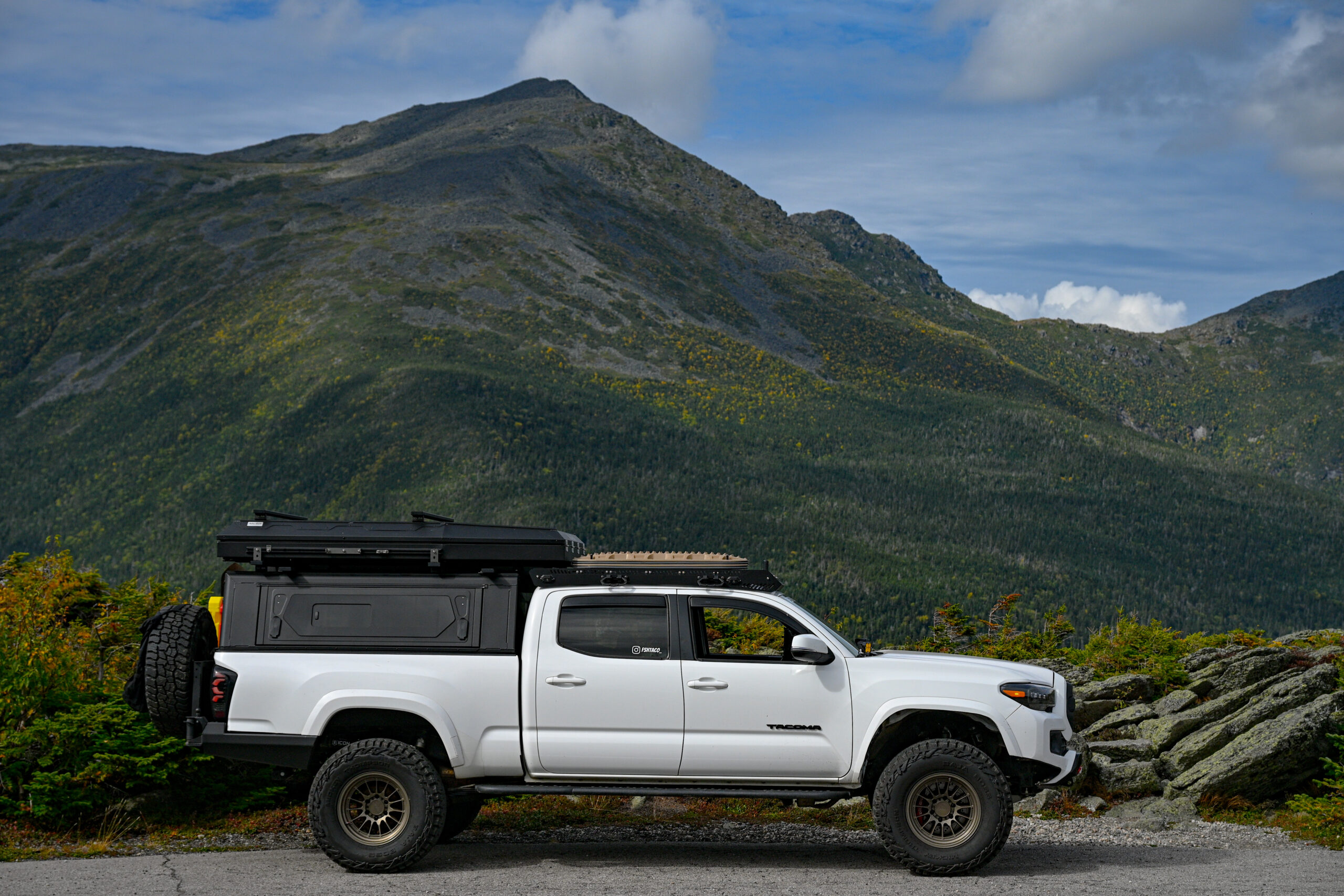
Building the "Fshtaco"
What was an unassuming white truck is now anything but. Franky transformed the 2017 Toyota Tacoma TRD Sport into a capable adventure rig that sits on 35” tires, with lockers and beefed-up suspension.
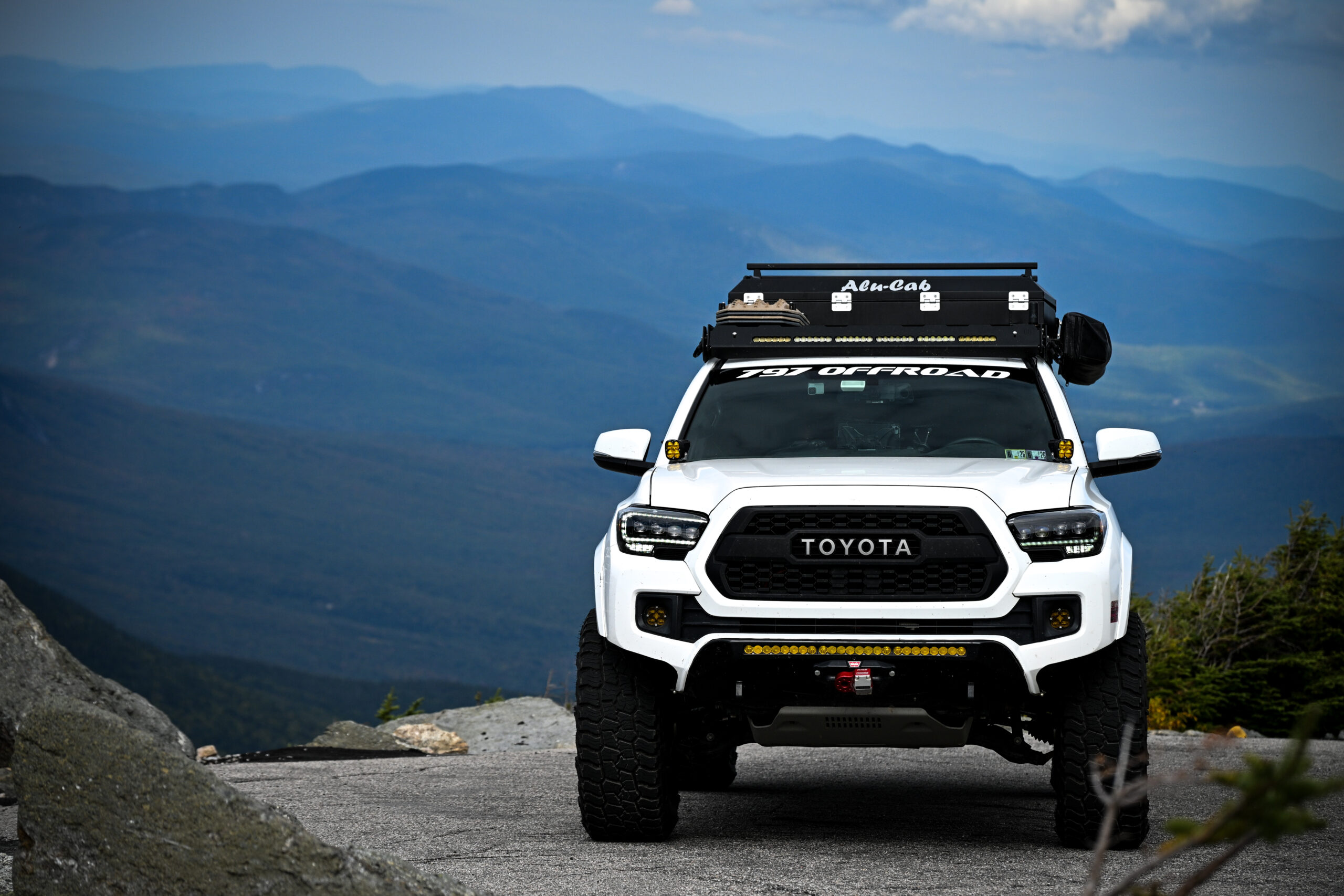
Security and Comfort
The evolution of his setup led Franky to a critical upgrade. Ditching his bed rack for integrated security and living space, he now runs a Contour Canopy and a Gen 3-R Rooftop Tent. "The cap was the perfect solution, allowing me to fine tune my setup, installing a secondary battery, a fridge and I can keep my gear dry and secure.”
For sleeping arrangements, the choice was clear. “The Alu-Cab tent is a no brainer, it’s the ‘Rolls Royce’ of rooftop tents.” He’s accessorised it with the Interior Drop-Down Table, an air mattress and a down comforter. "I sleep like a baby. Drool and everything. Haha.”
The decision to invest was made with a little help from his friends. “It took me a handful of rainy camps and a few ‘I’m telling you, you need this tent’ from a friend… for me to spend the money.” He’s now a true believer. “I don’t think there’s anything else like it. It’s the only way I would camp now.”

The Philosophy of a "Grab and Go" Weekender
Franky’s approach to adventure is refreshingly low-friction, perfectly suited to his life as a “weekend warrior at best.” “I would be lying if I said I was a planner. I'm a grab-and-go kind of person.” His planning consists of putting out a feeler to friends and hitting the road after clocking out on Friday. This spontaneity is possible with a rig that’s always ready. “Being almost ready to leave at any moment is a game changer. I leave the cap filled with everything I need to go.”
What he finds outside of the city limits is the appeal. “The peace and quiet. Unplugging from every day BS, and sitting in the middle of nowhere with nature and the sound of a JBL speaker spewing heavy metal. Quietly of course.”
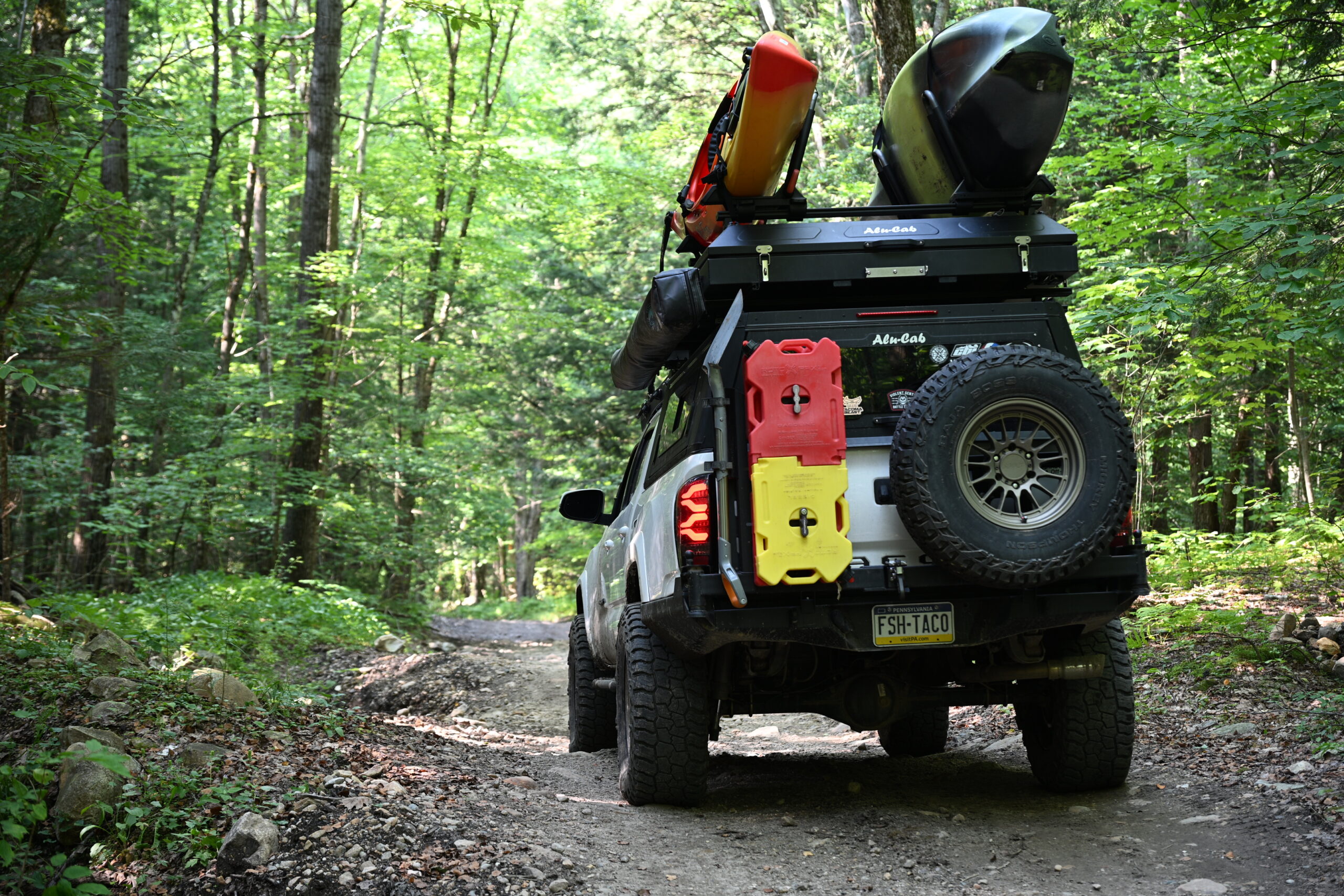
Unforgettable Moments
While his trips are short, they are still deeply memorable. A standout was exploring Mount Washington. “Driving through mountains, taking pictures, eating great food in little towns. Seeing other overlanders in the wild. It was an unforgettable experience.”
But the story that truly tested his setup involves a violent coastal storm on Assateague Island. After a beautiful ferry crossing and evening, a dark cloud rolled in. “It turned out to be one of the worst coastal storms I’ve ever seen in my life. 40+ mph winds and thunder that you felt in your chest.” Safe inside the Gen 3-R tent, Franky's experience was transformed. “The sound of rain on the roof, zippers clinging from the wind and a card game was all we needed… Being in a storm that violent and not being worried was pretty cool.” It’s a story his girlfriend now uses to “hype up the rig.”
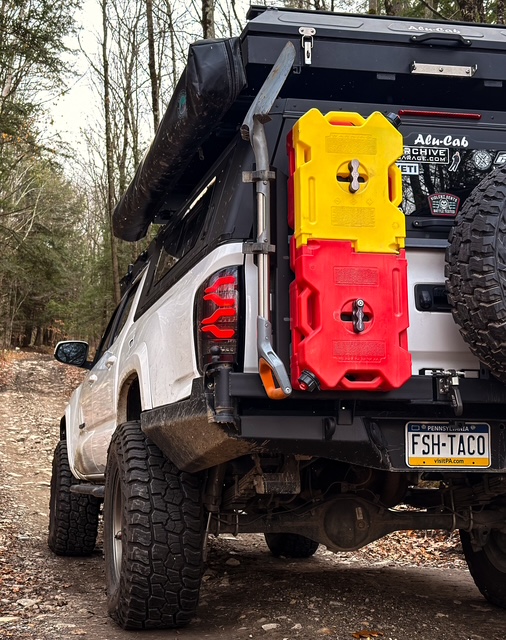
Looking West for a Milestone
Franky’s ultimate bucket-list adventure is taking shape around a milestone. “An Alaska or west coast trip is what I need. My 40th birthday is coming up fast.” The plan is simple. “Shipping the truck west and flying out to meet it. Then traveling for a month and driving back home. Happy birthday to me.”
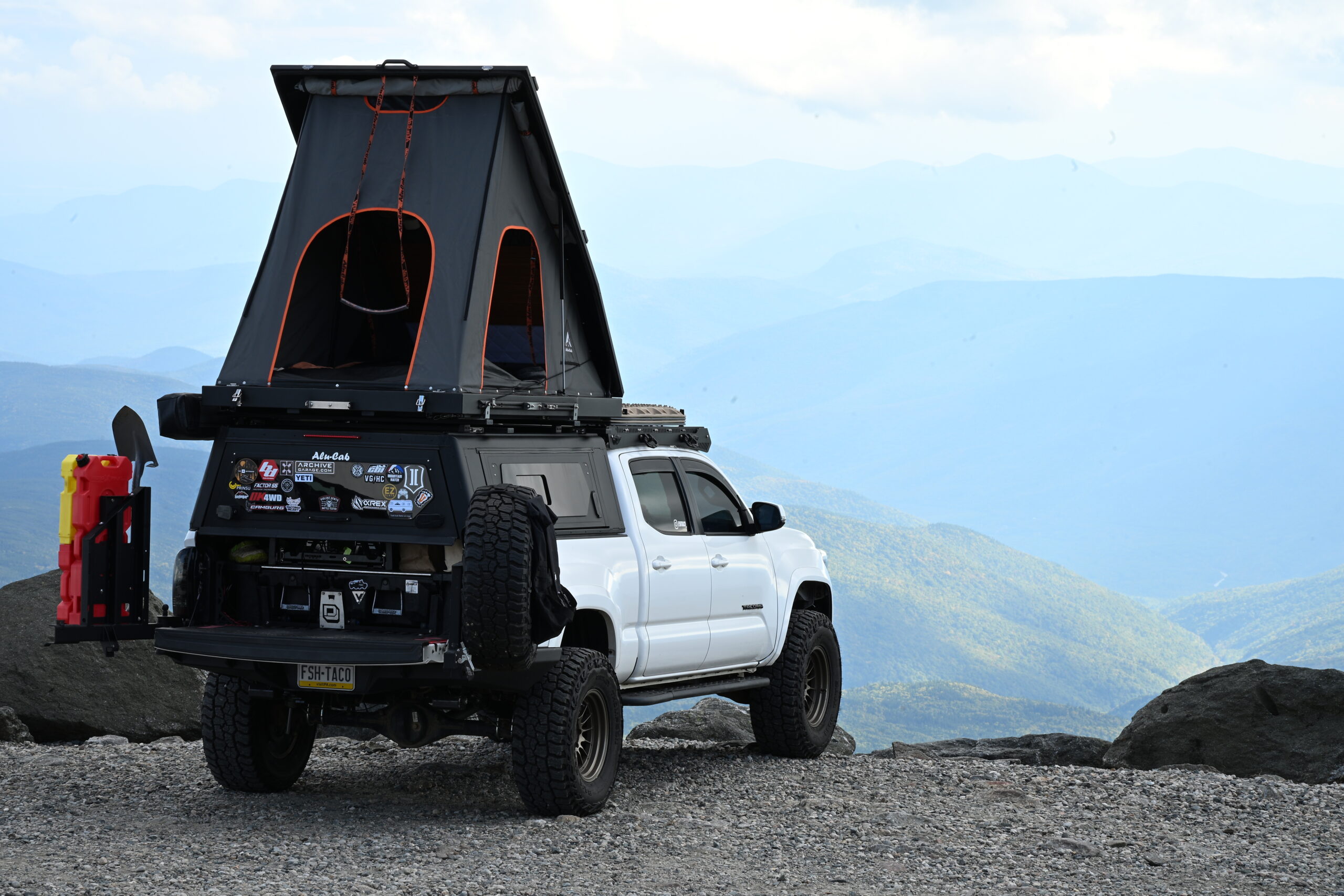
Community, Advice, and Inspiration
To Franky, the overlanding community represents a compelling alternative narrative. “It’s the idea that we don’t have to be planted into the ground to live a meaningful life. There are few people who have the privilege to be a weekend traveler let alone live a life on the road. So seeing people live the rolling life is definitely inspiring.”
His advice for newcomers is perfectly in character: "Just get out there. See things and meet great people. Be safe, smart and have fun.” He adds, with a touch of Philly directness, “Oh, and take your trash with you, dirtballs.”
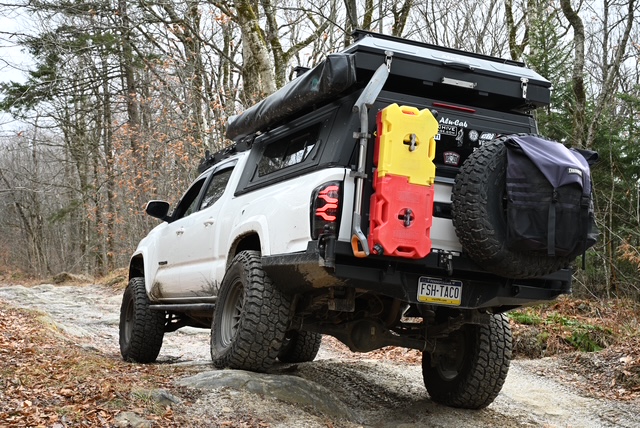
A Tribute to Roots, a Nudge for the Future
When asked who he’d invite on a dream trip, his answer is heartfelt. "My grand parents who passed. They taught me how to fish, grill, pitch a tent, make a fire… I always think about how much they would enjoy a trip to the woods, and see how much I enjoy doing the things they taught me.”
Looking forward, Franky’s “patiently waiting to turn 40” to cement his big trip. He also has a specific request to update his rig. “I'm patiently waiting for Alu-Cab's water tank solution for the Contour Canopy. Something like the ModCAP and Canopy Camper Water Tank Kit. Light a fire under R&D please and thanks!”

A Final Nod to Connection
Franky ends with gratitude for the sense of connection this lifestyle fosters. “Having a company from South Africa, being involved enough in the community to see somebody like me in a small town outside of Philadelphia, is a great feeling. We often get lost in everyday life and it’s nice to see a company that cares.”
From a Civic Type R, to a stock Tacoma, to the storm-proof Fshtaco, Franky’s journey has been part curiosity, reliable gear, and how the open road leads to connection. If you spot a weekend warrior with a taste for scrapple, hotdogs and the perfect heavy metal riff echoing softly into the woods, be sure to go on over and introduce yourself.